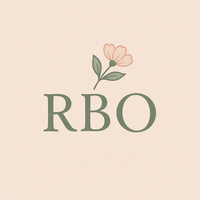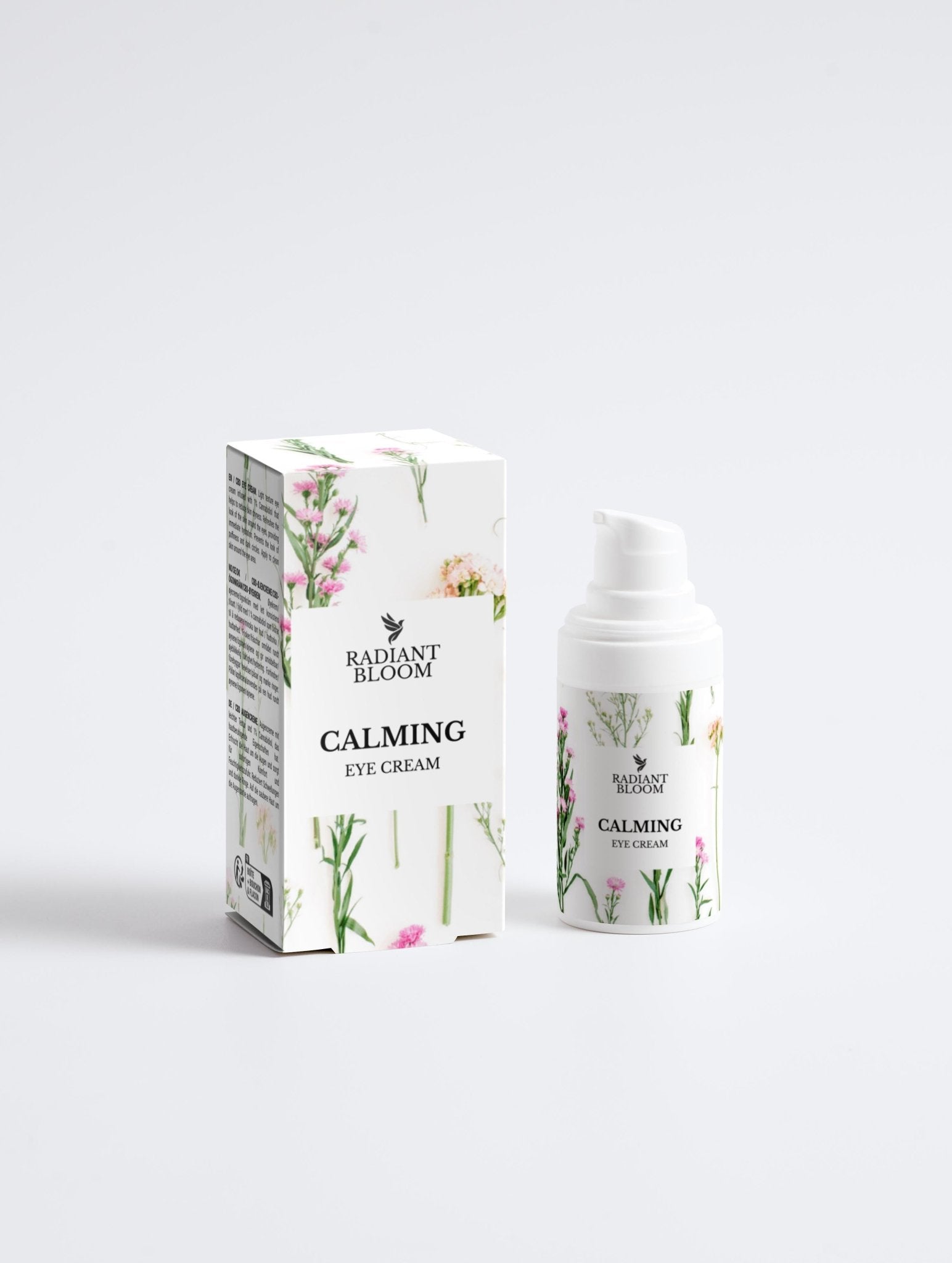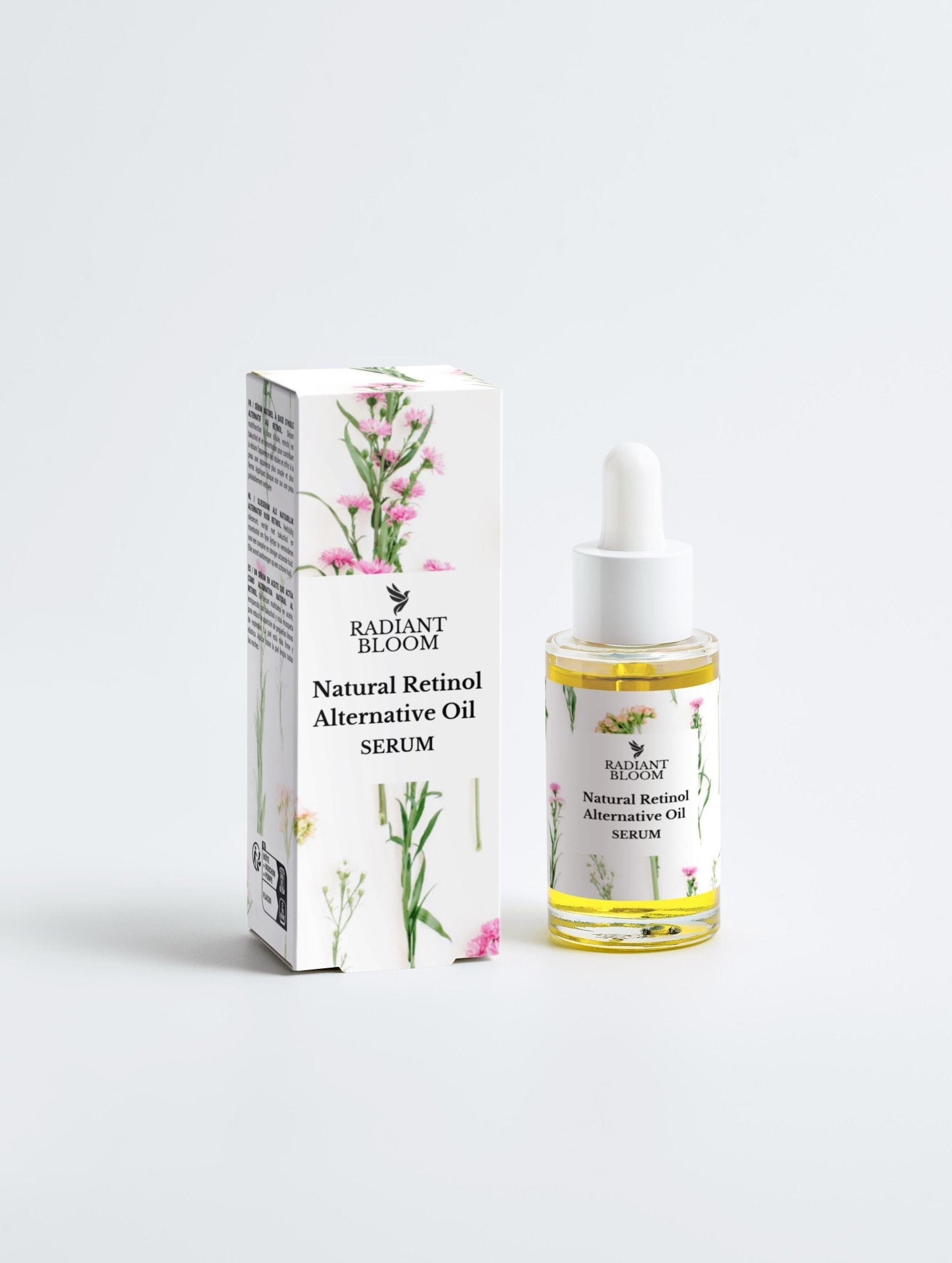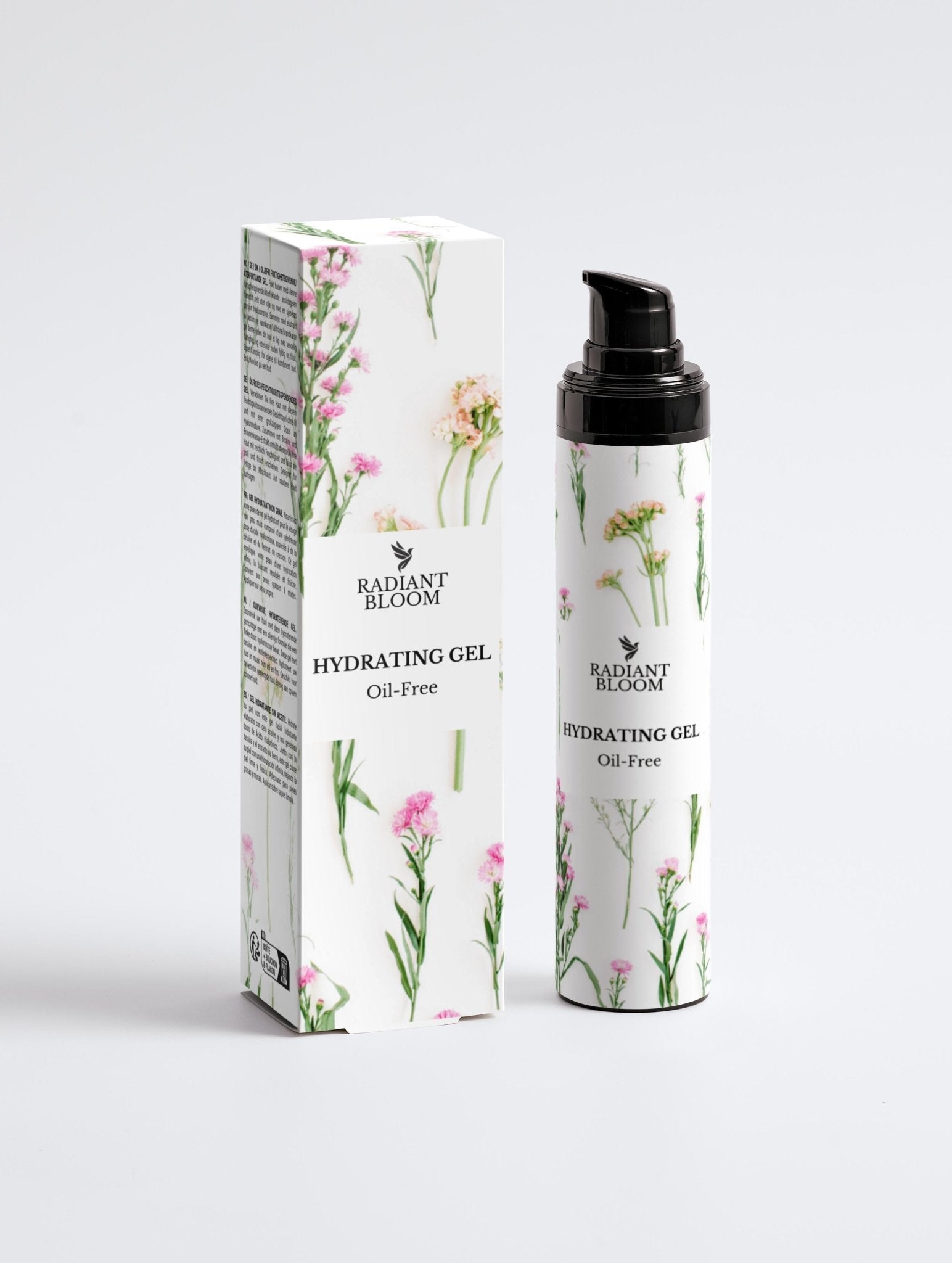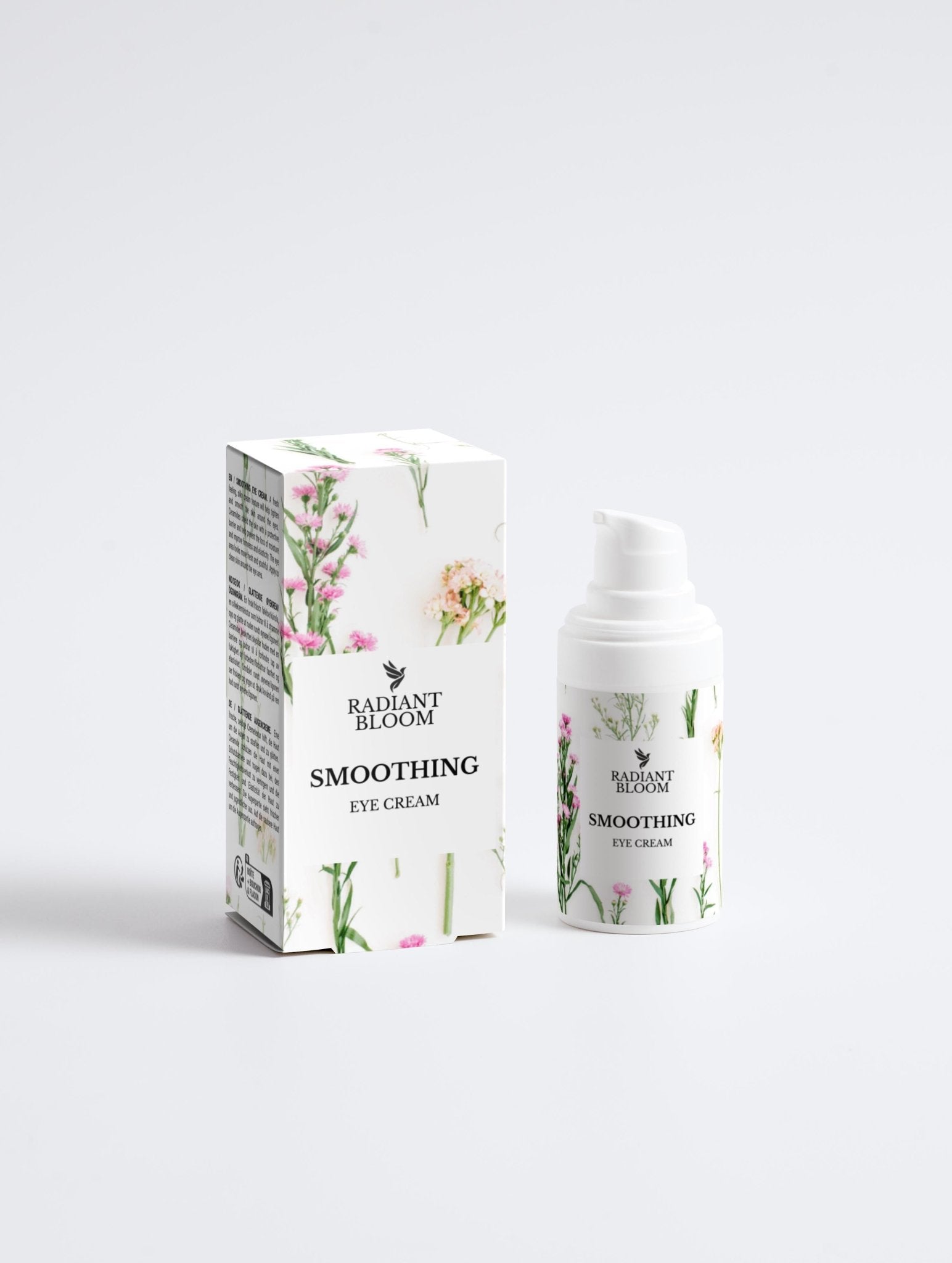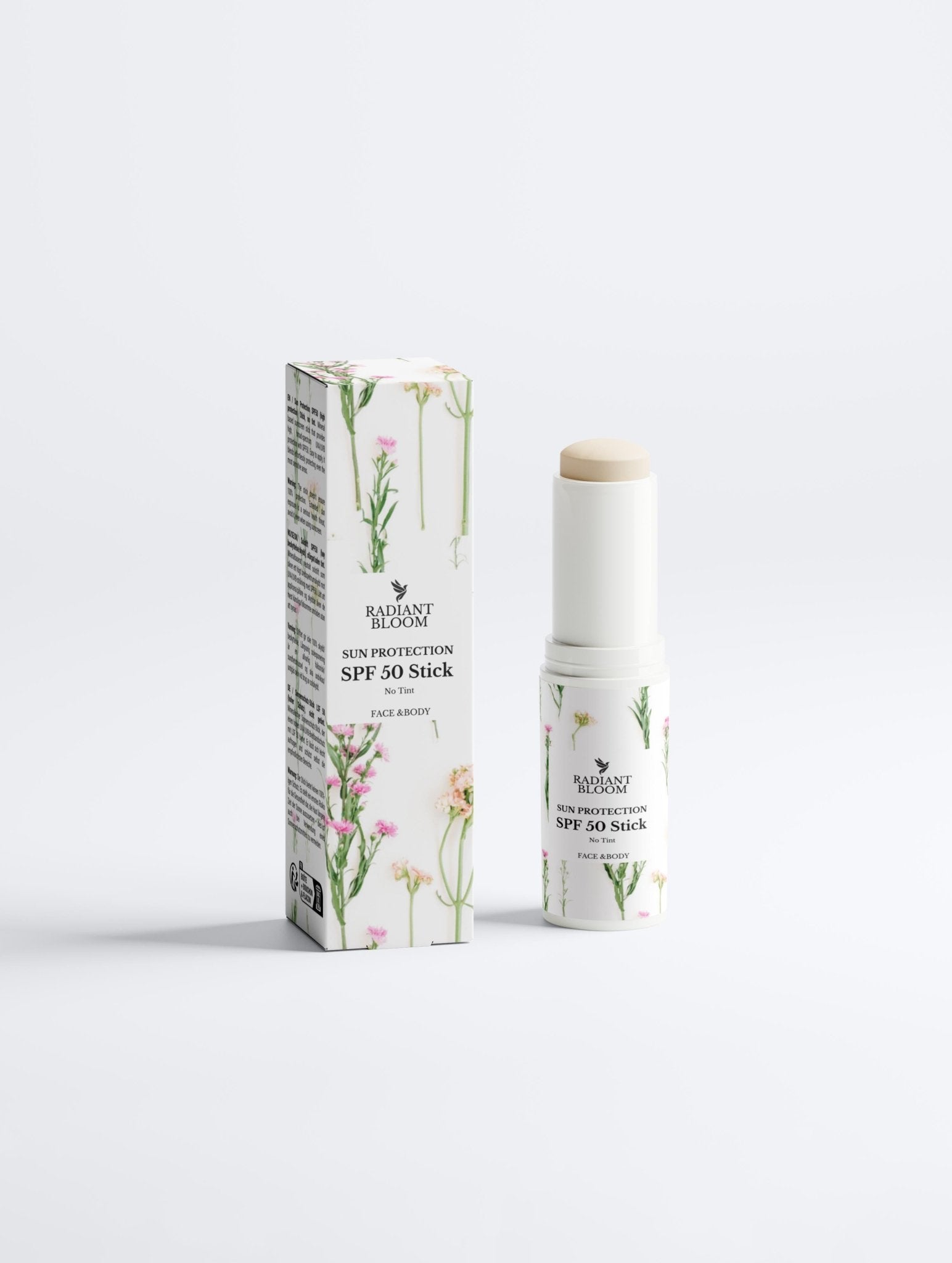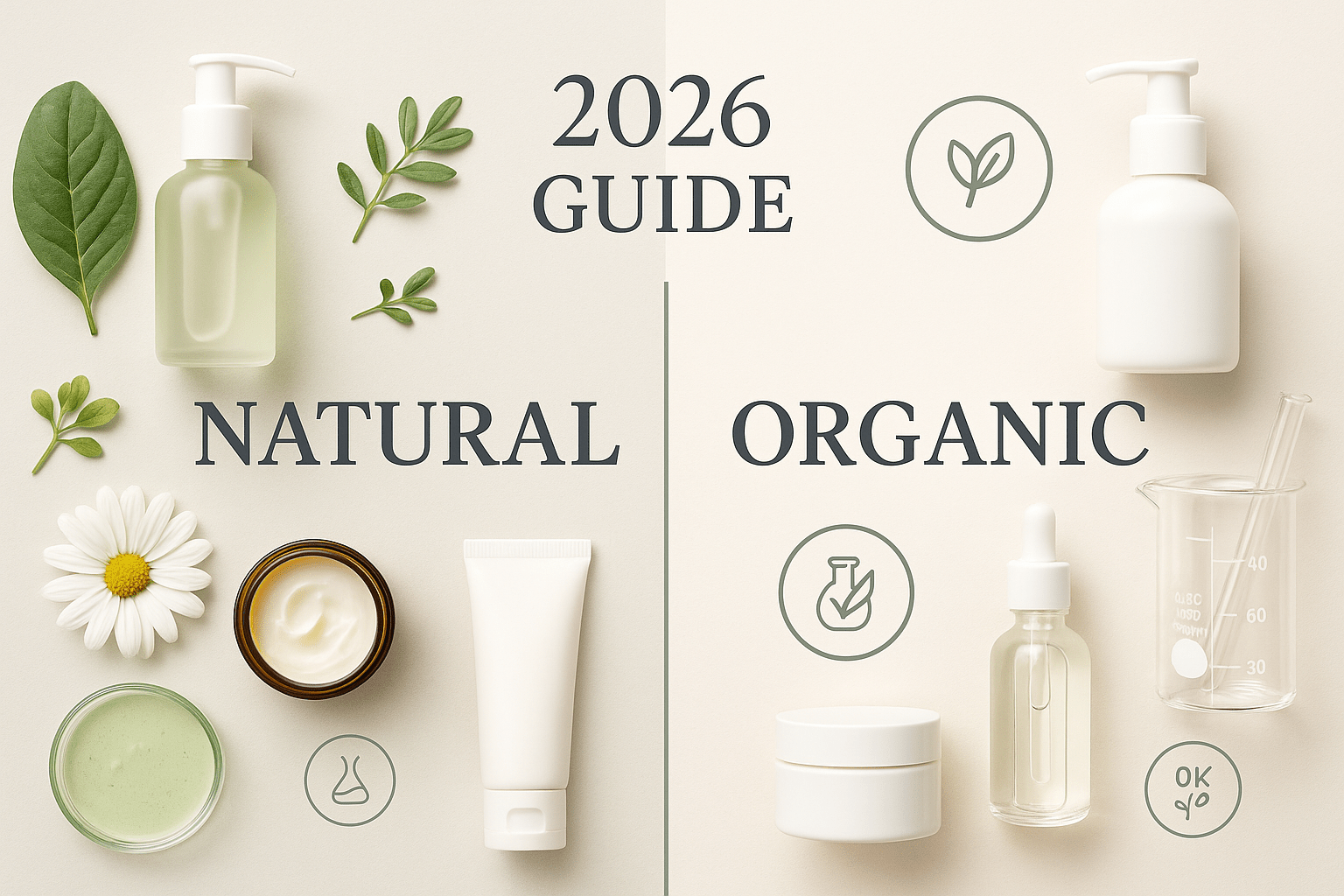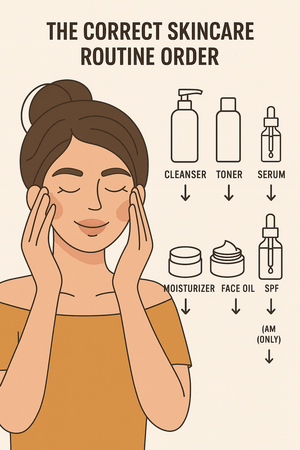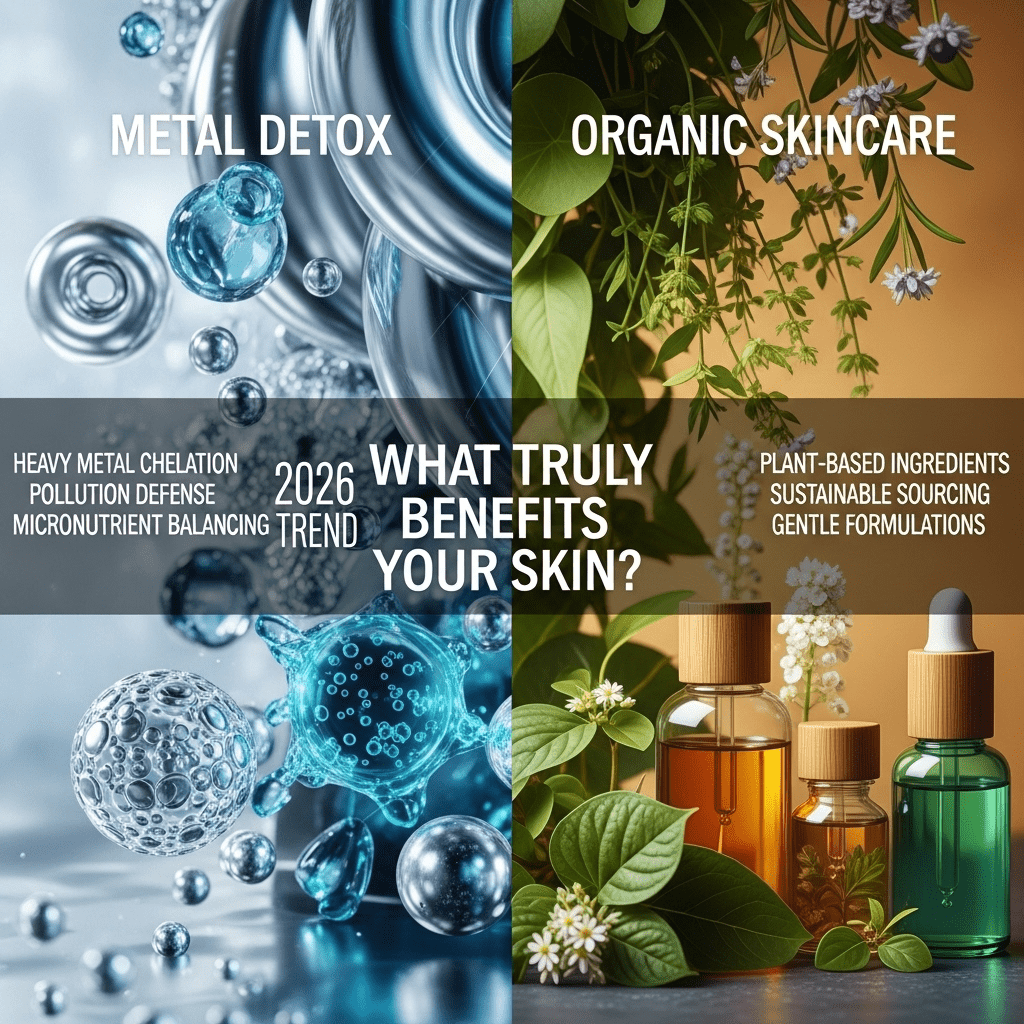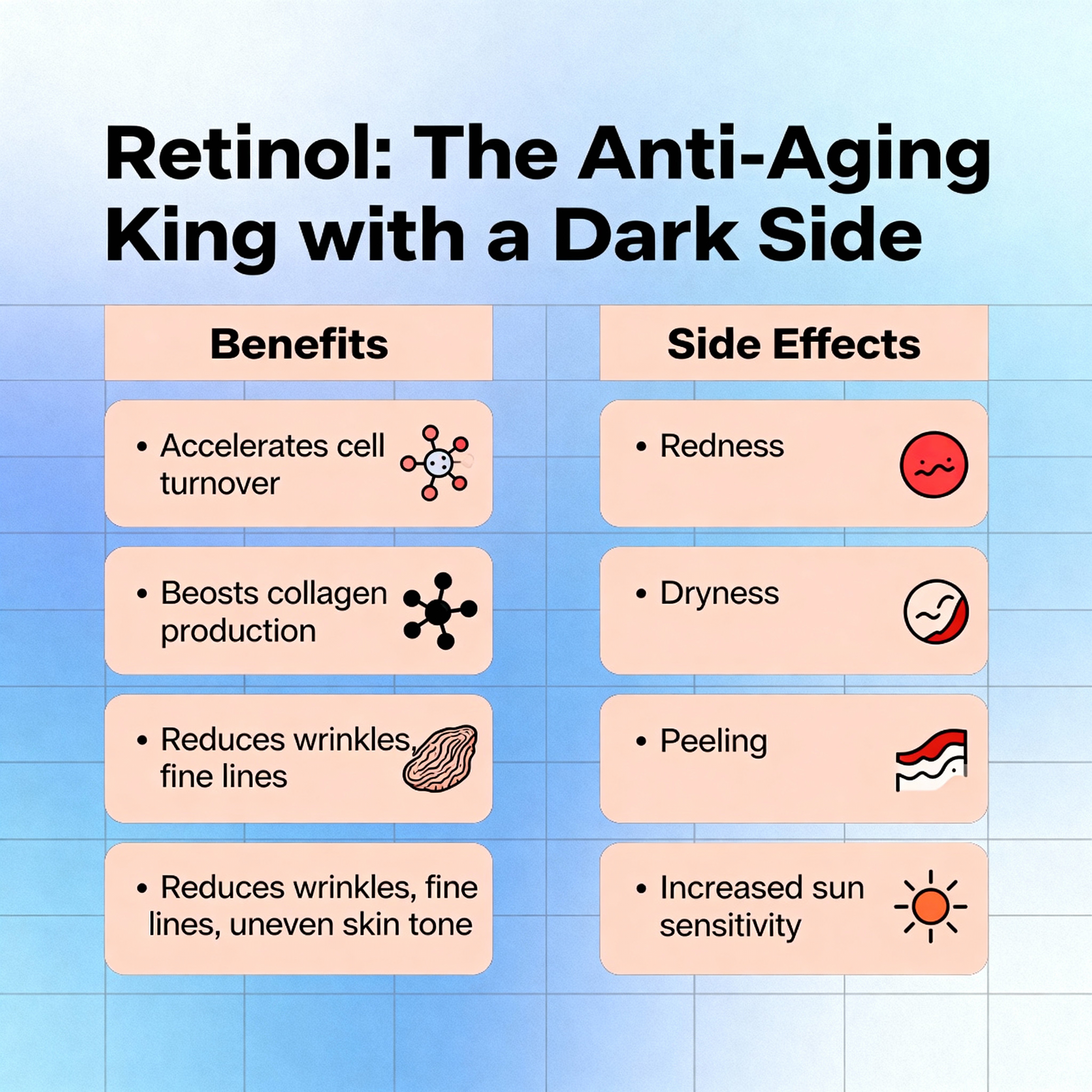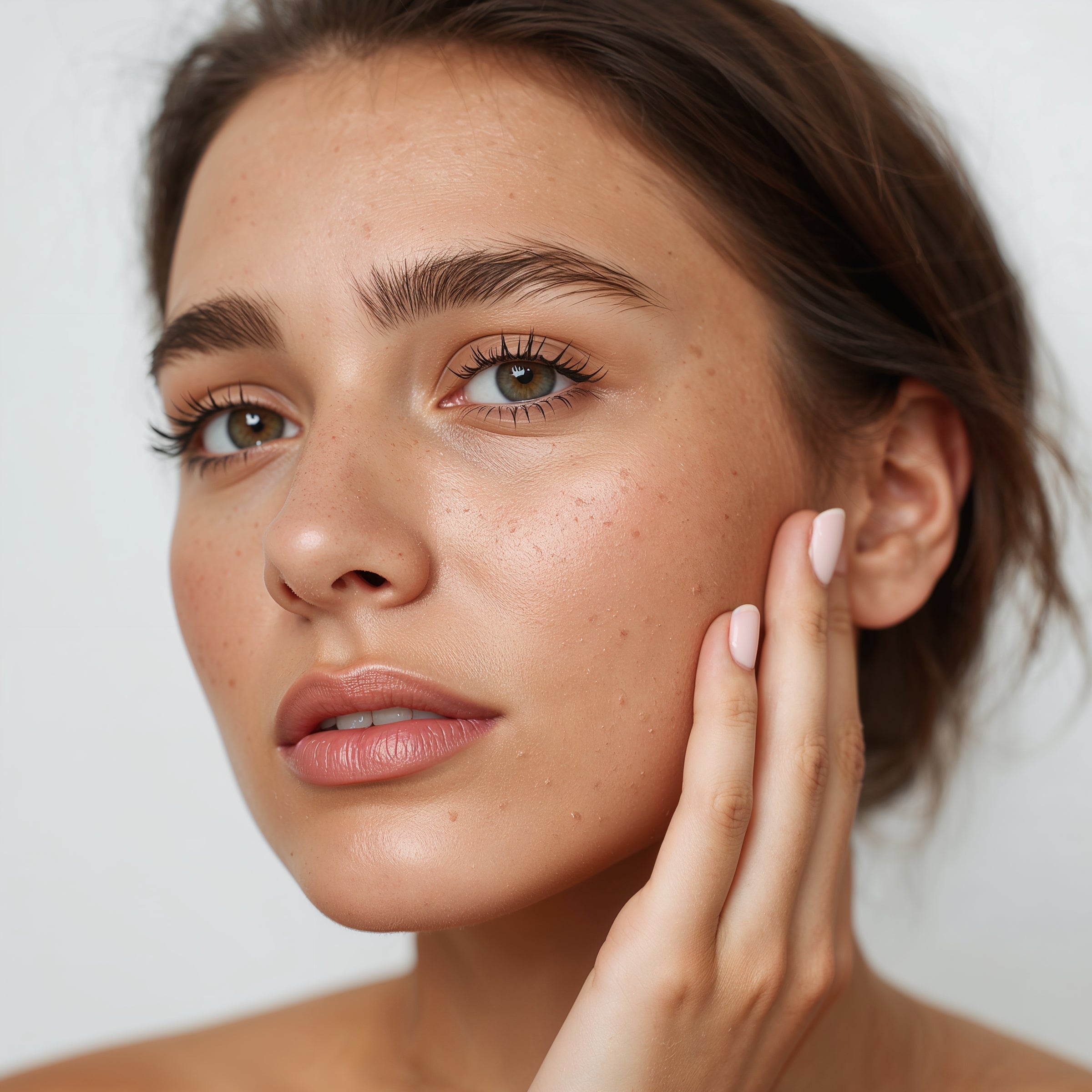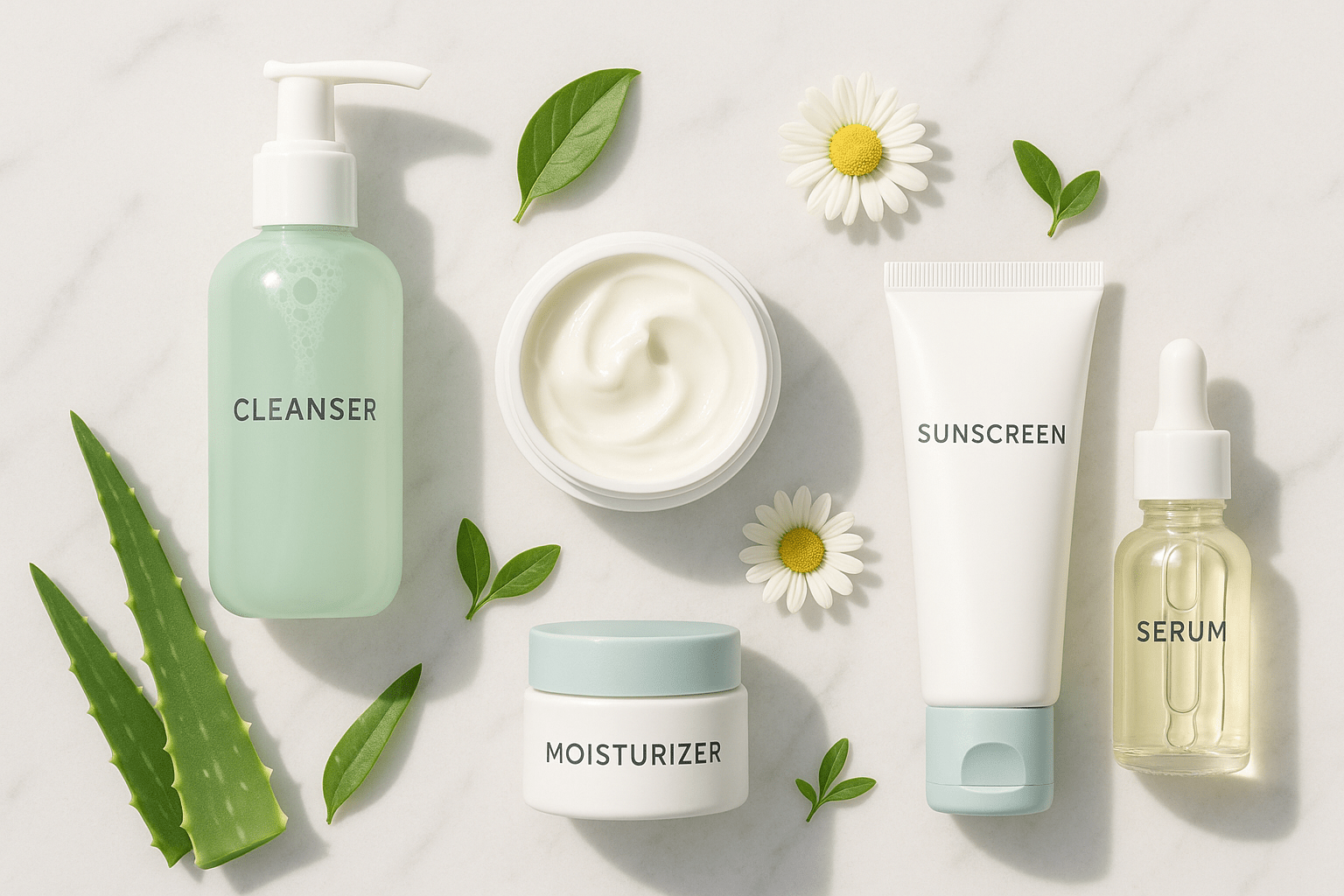Quick Answer Natural skincare contains ingredients from nature but may include synthetic preservatives, while organic skincare must contain 95% certified organic ingredients grown without pesticides or GMOs. For the purest, most effective skincare, choose certified organic products like Radiant Bloom Organic's eco-certified collection.
Understanding Natural Skincare
Natural skincare has exploded in popularity, with the global market reaching $13.2 billion in 2024. But what exactly qualifies as “natural skincare”?
What is Natural Skincare?
Natural skincare products primarily use ingredients derived from plants, minerals, and other naturally occurring substances. These include:
- Plant extracts and essential oils
- Natural butters (shea, cocoa, mango)
- Mineral-based ingredients
- Naturally-derived vitamins
- Plant-based preservatives
However, here’s what many don’t realize: “natural” isn’t a regulated term in skincare. This means brands can claim their products are natural even if they contain synthetic preservatives, fragrances, or processing aids.
The Natural Skincare Spectrum
Not all natural skincare is created equal. Products fall along a spectrum:
- Naturally-Inspired (70-80% natural): Contains mostly natural ingredients with some synthetic additives
- Natural (85-95% natural): Predominantly natural with minimal synthetic ingredients
- All-Natural (95-99% natural): Almost entirely natural ingredients
- 100% Natural (100%): No synthetic ingredients whatsoever
At Radiant Bloom Organic, we go beyond 100% natural – we’re certified organic, ensuring the highest quality ingredients for your skin.
Back to top ↑What Makes Skincare Truly Organic?
Organic skincare represents the gold standard in clean beauty. Unlike “natural,” organic is a strictly regulated certification with rigorous standards.
Organic Skincare Certification Requirements
To earn organic certification, skincare must meet these criteria:
- 95% minimum organic ingredients (excluding water and salt)
- No GMOs (genetically modified organisms)
- No synthetic pesticides or fertilizers in ingredient cultivation
- No irradiation for preservation
- Strict processing standards maintaining ingredient integrity
- Annual third-party inspections of facilities
Types of Organic Certifications
| Certification | Organic Content Required | Additional Requirements |
|---|---|---|
| USDA Organic | 95% | No GMOs, synthetic preservatives |
| COSMOS Organic | 95% (20% minimum of total) | Biodegradable packaging encouraged |
| Soil Association | 95% | Ethical sourcing required |
| Eco-Cert | 95% | Environmental sustainability focus |
Our Radiant Bloom Organic Glow & Hydrate Facial Oil exceeds these standards with 100% organic ingredients and eco-certification.
Back to top ↑Natural vs Organic: Key Differences
Understanding the distinction between natural and organic skincare empowers you to make informed choices for your skin health.
Side-by-Side Comparison
| Aspect | Natural Skincare | Organic Skincare |
|---|---|---|
| Regulation | No standard regulation | Strictly regulated & certified |
| Ingredient Source | Nature-derived | Certified organic farms |
| Synthetic Additives | May contain some | Prohibited or severely restricted |
| Pesticide Residue | Possible | None |
| GMOs | May be present | Prohibited |
| Processing | Various methods | Limited to maintain purity |
| Environmental Impact | Varies | Minimal, sustainable practices |
| Price Point | $ - $$ | $$ - $$$ |
| Efficacy | Good | Excellent (higher active concentrations) |
The Purity Difference
Consider this: a “natural” rose hip oil might contain:
- 95% rose hip oil (conventionally grown)
- 3% synthetic preservatives
- 2% synthetic fragrance
While an organic rose hip oil contains:
- 100% certified organic rose hip oil
- Nothing else
This purity translates to more potent skincare benefits and reduced risk of irritation from synthetic additives.
Back to top ↑Benefits of Choosing Organic Skincare
Investing in organic skincare like Radiant Bloom Organic's collection offers numerous advantages for your skin and overall health.
1. Higher Nutrient Concentration
Studies show organic plants contain:
- 69% more antioxidants than conventional crops
- Higher vitamin content (especially Vitamin C and iron)
- More beneficial phytochemicals for skin repair
2. No Harmful Chemical Residues
Conventional skincare may contain traces of:
- Pesticides (linked to hormone disruption)
- Heavy metals from contaminated soil
- Synthetic fertilizer residues
Organic certification ensures zero exposure to these potentially harmful substances.
3. Better for Sensitive Skin
Without synthetic fragrances, dyes, and preservatives, organic skincare is:
- 60% less likely to cause allergic reactions
- Gentler on compromised skin barriers
- Suitable for conditions like eczema and rosacea
Our Velvety Texture Face Cream is specifically formulated for sensitive skin with pure, organic ingredients.
4. Environmental Sustainability
- Biodiversity preservation (organic farms have 30% more species)
- Soil health through natural farming methods
- Water conservation and pollution reduction
- Carbon sequestration in healthy soil
5. Enhanced Efficacy
- More bioavailable to skin cells
- Free from pore-clogging synthetics
- Rich in active compounds
- Better preserved through gentle processing
How to Read Skincare Labels
Navigating skincare labels can be confusing. Here’s your decoder guide:
Red Flag Ingredients to Avoid
Even in “natural” products, watch for:
- Parabens (methylparaben, propylparaben)
- Sulfates (SLS, SLES)
- Synthetic fragrances (listed as “fragrance” or “parfum”)
- Phthalates (DBP, DEHP, DEP)
- Formaldehyde releasers (DMDM hydantoin, quaternium-15)
Green Light Ingredients
Look for these certified organic ingredients:
- Aloe vera* (organic)
- Jojoba oil* (organic)
- Rosehip seed oil* (organic)
- Green tea extract* (organic)
- Chamomile extract* (organic)
*The asterisk indicates organic certification
Label Positioning Matters
- First 5 ingredients = majority of the product
- After preservatives = less than 1% concentration
- At the end = trace amounts
Building Your Natural Skincare Routine
Whether you choose natural or organic, establishing a consistent routine is crucial. Here’s how to build an effective natural skincare routine using organic products.
Morning Routine (5 Steps)
-
Gentle Cleanser: Remove overnight buildup
- Try: Organic cream or gel cleanser
- Application: Massage for 30 seconds, rinse with lukewarm water
-
Toner/Essence: Balance pH and prep skin
- Try: Alcohol-free, organic rose water
- Application: Pat gently with hands or cotton pad
-
Serum: Target specific concerns
- Try: Radiant Bloom Organic serums
- Application: Press 2–3 drops into skin
-
Moisturizer: Hydrate and protect
- Try: Velvety Texture Face Cream
- Application: Upward strokes on face and neck
-
SPF: Essential sun protection
- Try: Mineral sunscreen with zinc oxide
- Application: ¼ teaspoon for face
Evening Routine (6 Steps)
-
Oil Cleanser: Remove makeup and sunscreen
- Try: Glow & Hydrate Facial Oil as first cleanse
- Water-Based Cleanser: Deep clean pores
-
Exfoliant (2–3× weekly): Remove dead skin cells
- Try: Organic enzyme or AHA treatment
- Toner: Restore balance
- Treatment Serum: Repair and regenerate
- Night Cream/Oil: Deep nourishment
Skincare Routine Order Rules
Remember this sequence for optimal absorption:
Thinnest → Thickest • Water-based → Oil-based • Treatment → Protection
Back to top ↑Best Organic Skincare Ingredients
For Anti-Aging
- Rosehip Oil: Rich in vitamin A, promotes cell turnover
- Argan Oil: Vitamin E powerhouse, improves elasticity
- Green Tea: Antioxidants fight free radicals
- Pomegranate: Stimulates collagen production
For Acne-Prone Skin
- Tea Tree Oil: Natural antibacterial properties
- Willow Bark: Natural salicylic acid source
- Neem Oil: Reduces inflammation
- Witch Hazel: Minimizes pores naturally
For Dry/Sensitive Skin
- Calendula: Soothes irritation
- Chamomile: Reduces redness
- Oat Extract: Strengthens skin barrier
- Shea Butter: Deep moisturization
For Brightening
- Vitamin C (from kakadu plum): Brightens dark spots
- Licorice Root: Evens skin tone
- Kojic Acid (from mushrooms): Reduces hyperpigmentation
- Turmeric: Natural glow enhancer
Find these ingredients in Radiant Bloom Organic's 100% natural, vegan, eco-certified collection.
Back to top ↑Common Misconceptions
Myth 1: “Natural means hypoallergenic”
Truth: Natural ingredients can still cause allergic reactions. Poison ivy is natural! Always patch test new products.
Myth 2: “Organic products don’t work as well”
Truth: Organic products often work better due to higher active ingredient concentrations and better bioavailability.
Myth 3: “Natural products don’t need preservatives”
Truth: Any product containing water needs preservation. Organic products use natural preservatives like vitamin E and rosemary extract.
Myth 4: “All chemicals are bad”
Truth: Everything is a chemical, including water (H₂O). The key is avoiding harmful synthetic chemicals.
Myth 5: “Organic skincare expires faster”
Truth: While shelf life may be shorter (12–24 months vs 36 months), proper storage maintains efficacy.
Back to top ↑Making the Switch
Ready to transition to organic skincare? Follow this strategic approach:
Week 1–2: Cleanser and Moisturizer
- Replace your cleanser with an organic option
- Switch to an organic moisturizer
- Monitor skin’s response
Week 3–4: Add Treatments
- Add an organic serum for specific concerns
- Include a gentle organic toner
- Consider Radiant Bloom’s treatment oils
Week 5–6: Complete Transition
- Replace any remaining conventional products
- Add weekly treatments (masks, exfoliants)
- Establish morning and evening routines
Transition Tips
✅ DO: Introduce products gradually • Patch test everything • Give products 4–6 weeks • Store properly (cool, dark places)
❌ DON'T: Switch everything at once • Mix too many actives • Expect overnight miracles • Give up too quickly
Back to top ↑Frequently Asked Questions
Is organic skincare worth the higher price?
Yes, considering higher active concentrations, absence of harmful chemicals, environmental benefits, and long-term skin health improvements.
Can I mix natural and organic products?
Absolutely. Prioritize organic for leave-on treatments (serums, moisturizers) and use natural products for rinse-off items if budget is a concern.
How long before I see results?
Most notice improved texture within 2 weeks; significant results after 4–6 weeks of consistent use.
Are all organic skincare brands the same?
No. Look for third-party certifications and full ingredient transparency. Radiant Bloom Organic exceeds industry standards.
What’s the difference between “made with organic” and “certified organic”?
- Made with organic: ≥70% organic ingredients
- Certified organic: ≥95% organic ingredients
- 100% organic: Every ingredient is certified organic
Can pregnant women use organic skincare?
Generally safer due to avoiding potentially harmful chemicals. Always consult your healthcare provider; avoid certain essential oils (e.g., rosemary, sage).
How do I know if a product is truly organic?
- Certification logos and numbers
- Asterisks (*) next to organic ingredients
- Transparent brand communication
Expert Tips for Maximum Results
Layer Products Correctly
- Cleanser
- Toner
- Serums
- Eye cream
- Moisturizer
- Face oil
- SPF (AM only)
The 60-Second Rule
Massage cleanser for a full 60 seconds to boost circulation and efficacy.
Double Cleansing Method
- First cleanse: Oil-based (e.g., Glow & Hydrate Facial Oil)
- Second cleanse: Water-based
The Hydration Sandwich
Apply serum to damp skin → layer moisturizer → seal with facial oil for up to 40% more hydration.
Back to top ↑Ingredients to Avoid vs. Embrace
Toxic Twenty (Avoid These)
- Parabens
- Phthalates
- Formaldehyde
- Toluene
- Sodium Lauryl Sulfate (SLS)
- Polyethylene Glycols (PEGs)
- Triclosan
- Oxybenzone
- Hydroquinone
- Retinyl Palmitate
- Coal Tar
- BHA and BHT
- DEA/MEA/TEA
- MI/MCI
- Aluminum compounds
- EDTA
- Benzalkonium Chloride
- Resorcinol
- Propylene Glycol
- Talc
Power Twenty (Embrace These Organic Ingredients)
- Hyaluronic Acid (plant-derived)
- Vitamin C (Kakadu plum)
- Niacinamide
- Retinol (from rosehip)
- AHAs (fruit)
- BHA (willow bark)
- Ceramides (plant-derived)
- Peptides (plant-based)
- Squalane (olives)
- Bakuchiol
- Centella Asiatica
- Green Tea Extract
- Resveratrol
- CoQ10
- Alpha Lipoic Acid
- Vitamin E
- Ferulic Acid
- Astaxanthin
- Probiotics
- Marine Algae
Real Customer Transformations
Sarah’s Sensitive Skin Journey
“After years of reactions to ‘natural’ products, I discovered they contained hidden synthetics. Switching to Radiant Bloom Organic changed everything. Zero reactions, just healthy, calm skin.”
Her Routine: Morning: Gentle cleanser + Velvety Texture Cream • Evening: Double cleanse + Glow & Hydrate Oil
Michael’s Acne Solution
“I thought organic meant ineffective for acne. I was wrong. The pure ingredients actually helped my skin heal without harsh chemicals.”
His Routine: Clarifying organic cleanser 2× daily • Tea tree spot treatment • Lightweight organic moisturizer
Jennifer’s Anti-Aging Success
“At 45, my skin looks better than it did at 35. Organic skincare’s higher antioxidant levels really make a difference.”
Her Routine: Vitamin C serum (AM) • Retinol alternative (PM) • Rich organic night cream
Back to top ↑The Science Behind Organic Skincare
Bioavailability Studies
- Organic ingredients show 23% better skin penetration
- 45% higher antioxidant activity in organic extracts
- Reduced inflammatory markers with organic skincare use
Environmental Impact Research
- Organic production uses 45% less energy
- Creates 40% fewer greenhouse gases
- Supports 50% more wildlife on farmland
Skin Microbiome Benefits
- Maintains healthy microbiome balance
- Doesn’t disrupt beneficial bacteria
- Supports skin’s natural defenses
Your 30-Day Organic Skincare Challenge
Week 1: Foundation
- Replace cleanser with organic option
- Switch to organic moisturizer
- Take “before” photos & note concerns
Week 2: Enhancement
- Add organic serum
- Introduce weekly mask
- Track skin changes & adjust
Week 3: Optimization
- Tune amounts & techniques
- Add targeted treatments
- Document improvements
Week 4: Maintenance
- Establish consistent routine
- Take “after” photos & compare
- Share your transformation
Join thousands who’ve made the switch to Radiant Bloom Organic and experienced real results.
Back to top ↑Seasonal Skincare Adjustments
Spring (March–May)
- Lighter moisturizers • Add antioxidants • Gentle exfoliation
Summer (June–August)
- Oil-free hydration • More SPF • Cooling masks and mists • Try: Lightweight serums
Fall (September–November)
- Transition to richer formulas • Add hydrating serums • Repair sun damage • Try: Velvety Texture Face Cream
Winter (December–February)
- Heaviest moisturizers • Facial oils • Gentle, cream cleansers • Try: Glow & Hydrate Facial Oil
Building Your Skincare Budget
Smart Investment Strategy
- Serums/Treatments
- Moisturizers
- Cleansers
- Masks
Cost Per Use Analysis
Radiant Bloom Organic Glow & Hydrate Oil: 30ml ≈ 150 drops → 3 drops/use = 50 uses → cost per use < your morning coffee.
Money-Saving Tips
- Start with travel sizes • Look for bundles • Subscribe for discounts • Use correct amounts
The Bottom Line: Making Your Choice
Choose Natural If:
- Tight budget • Just starting clean beauty • No specific concerns • Want more variety
Choose Organic If:
- Sensitive/reactive skin • Maximum efficacy • Environmental impact matters • Prefer transparency • Investing long-term
The Best Choice: Certified Organic
For serious skin health and environmental responsibility, certified organic skincare like Radiant Bloom Organic offers guaranteed purity, maximum efficacy, sustainability, transparency, and peace of mind.
Back to top ↑Take Action Today
- Assess Your Routine
- Identify Goals
- Start Simple: Starter Collection
- Track Progress
- Be Patient (4–6 weeks)
Exclusive Offer for Blog Readers
- Use code ORGANIC15 for 15% off your first order
- Free shipping over $150 • 30-day money-back • Community access
Connect & Learn More
Continue Your Organic Skincare Education
- Next Read: Building Your Natural Skincare Routine: Complete Guide
- Related: Best Organic Skincare Ingredients for Your Skin Type
- Advanced: The Science of Organic Anti-Aging
Join Our Community
- Instagram: @radiantbloomorganic
- Email Newsletter: Weekly tips and offers
- Facebook Group: Share your journey with 10,000+ members
Need Personalized Advice?
- Email: info@radiantbloomorganic.com
- Live Chat: Mon–Fri, 9am–5pm EST
- Skin Quiz: Get tailored recommendations
Final Thoughts
The choice between natural and organic skincare ultimately comes down to your priorities, budget, and skin needs. While natural skincare offers a cleaner alternative to conventional products, certified organic skincare provides the ultimate in purity, efficacy, and environmental responsibility.
At Radiant Bloom Organic, we believe everyone deserves access to pure, effective skincare that doesn’t compromise on quality or ethics. Our 100% natural, vegan, eco-certified products deliver real results while supporting your health and our planet.
Remember: Great skin doesn’t happen by chance, it happens by choice. Choose organic. Choose Radiant Bloom.
Have questions about natural vs organic skincare? Leave a comment below or reach out to our skincare experts. Don’t forget to share this guide with friends who are curious about clean beauty!
Pin this article for later | Share on Facebook | Tweet this guide
Medical Disclaimer
This article is for informational purposes only and does not constitute medical advice. Always consult with a dermatologist or healthcare provider for persistent skin concerns.
Affiliate Disclosure
This post contains links to Radiant Bloom Organic products. We only recommend products we truly believe in and use ourselves.
